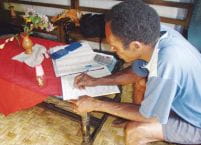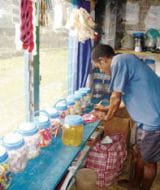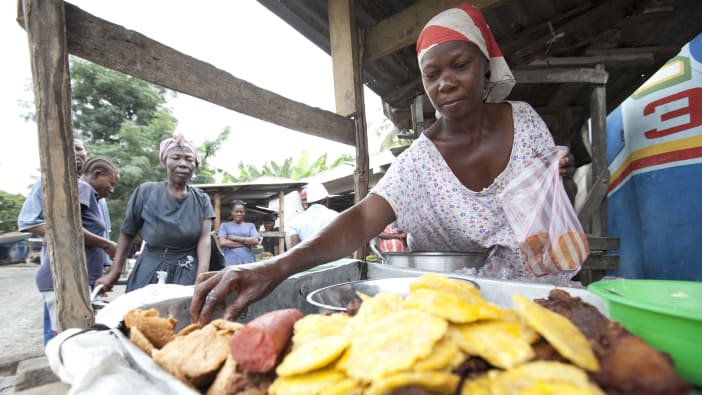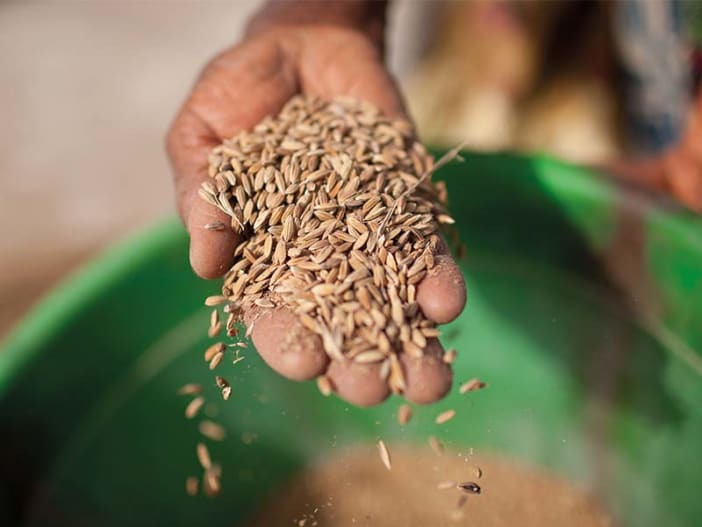This is a summary of the business lifestory of Charles Asso, a man who did not give up after his business failed several times during 16 years. But even great perseverance could not help his kiosk to survive. People like Charles need to learn how to run a business well and how to deal with cultural situations.
In our organisation, Yayasan Oikonomos Papua, we often meet men and women like Charles Asso. From its beginning, Yayasan Oikonomos Papua started to support people by giving them the opportunity to join courses in our business school and to receive micro-credit. We quickly found out that this was not enough support, so we started our ‘Incubator programme’. People can now join training units, such as a kiosk or computer rental shop, so that they can be trained in a business environment for several months. This means they will be better prepared to keep their business running once it has been set up. Through the programme we also coach people over the long-term by providing follow-up training. Long-term coaching and accompaniment are key factors for success.
Overcoming difficulties
There are many difficulties that Papuan entrepreneurs have to overcome. Seven key difficulties faced by them are:
Entrepreneurs give away goods and money to relatives, which means that income is lost and reinvestment in the business is not possible. (Papuans feel obliged to do this to maintain relationships and avoid curses which are linked to their animistic roots.)
A lack of good book-keeping causes irresponsible spending.
Entrepreneurs lack discipline and the motivation to work hard for the business, because they have low expectations of success.
There is a lack of good transport infrastructure in West Papua which makes it difficult for business owners to transport their products to market.
Papuans are ‘programmed’ with the Indonesian status system. For example, working in a kiosk is for the Javanese people group, gardening is for Papuans and carpenters are Manadoo people. This gives low self-esteem and a lack of motivation to break out of this way of thinking.
Papuans often have to pay higher prices for raw materials than non-Papuans and therefore have to charge higher prices in order to make a profit.
Rising prices of supplies creates difficulties in making a profit.
To improve micro-enterprise we recommend the following actions:
- Create and cultivate role models (also know as ‘agents of change’).
- Pay more attention to private bookkeeping and savings.
- Visit people after training sessions to provide follow-up and support.
- Include more information about social and cultural aspects in the training sessions.
- Teach people the Christian responses to animistic beliefs and curses.











